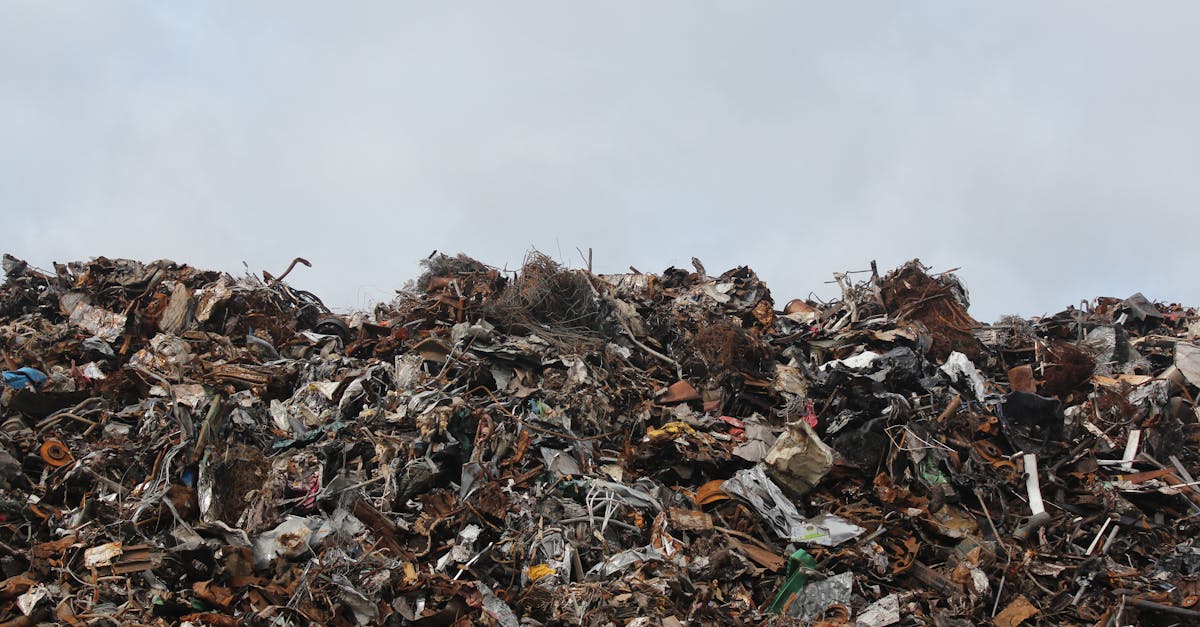
Table Of Contents
Waste Management Regulations
Waste management regulations play a crucial role in overseeing the proper handling of garbage collection and disposal. These regulations are established by governmental bodies to ensure that waste is managed in a safe and environmentally responsible manner. By setting standards and guidelines for waste disposal practices, regulations aim to minimize the negative impact of waste on public health and the environment.
Compliance with waste management regulations is essential for individuals, businesses, and organizations involved in garbage collection and disposal activities. Failure to adhere to these regulations can result in legal consequences and penalties. It is imperative for stakeholders to stay informed about the current waste management laws in their region and follow the prescribed procedures to contribute to sustainable waste management practices.
Compliance and Enforcement of Disposal Laws
Compliance with disposal laws is crucial in fostering responsible waste management practices in communities. Garbage Collection and Disposal regulations aim to ensure the proper handling, storage, and disposal of waste to minimize environmental impact and promote public health. These laws establish guidelines for waste segregation, transportation, and final disposal methods to maintain cleanliness and safety in residential and commercial areas. Municipalities and waste management authorities enforce these regulations through routine inspections and monitoring to verify that waste producers adhere to the outlined procedures and guidelines set forth for Garbage Collection and Disposal activities.
Strict enforcement of disposal laws is essential to deter illegal dumping and promote sustainable waste management practices. By holding individuals and businesses accountable for their waste disposal actions, regulatory bodies can mitigate environmental pollution and safeguard natural resources. Compliance measures such as fines, penalties, and corrective actions serve as disincentives for improper waste disposal practices, fostering a culture of responsibility and accountability among waste generators. By upholding the enforcement of Garbage Collection and Disposal regulations, communities can work towards a cleaner and healthier environment for current and future generations.
Role of Recycling
Recycling plays a vital role in the realm of garbage collection and disposal. By repurposing materials that would otherwise end up in landfills, recycling helps minimize the amount of waste that accumulates in our environment. The process of recycling also conserves natural resources, reduces energy consumption, and decreases greenhouse gas emissions, thereby contributing to a more sustainable future for our planet.
Moreover, recycling programs encourage responsible waste management practices among individuals and communities. By fostering a culture of recycling, organizations and governments can instill the importance of reducing, reusing, and recycling in daily routines. Through education and awareness campaigns, recycling initiatives aim to change behaviors and attitudes towards waste disposal, ultimately creating a greener and cleaner environment for all.
Benefits of Recycling Programs
Recycling programs play a crucial role in the sustainable management of waste and the preservation of our environment. By diverting recyclable materials from landfills, these programs help reduce the amount of waste that ends up in garbage collection and disposal sites. This not only conserves valuable landfill space but also minimizes the environmental impact of waste disposal, leading to a cleaner and healthier community.
Furthermore, recycling programs contribute to the conservation of natural resources by reducing the need for raw materials in the production of new goods. By reusing materials such as paper, glass, plastics, and metals, recycling helps to decrease energy consumption and greenhouse gas emissions associated with the extraction and processing of virgin resources. Through this process, recycling programs not only benefit the environment but also promote a more sustainable and circular economy that minimizes the consumption of finite resources.
Hazardous Waste Handling
Hazardous waste handling is a critical aspect of proper garbage collection and disposal. Entities generating hazardous waste must adhere to stringent regulations to ensure safe handling, storage, transportation, and disposal of such materials. Hazardous waste poses significant risks to human health and the environment, necessitating specialized procedures for its management.
Proper procedures for hazardous waste handling involve identifying, categorizing, and segregating hazardous materials to prevent contamination and exposure. Effective labeling, storage, and transportation of hazardous waste are essential components of ensuring safe disposal practices. Furthermore, regular training and strict adherence to disposal protocols are imperative to minimize the potential impact of hazardous materials on public health and the environment.
Proper Procedures for Hazardous Materials
Proper handling of hazardous materials is crucial in the realm of garbage collection and disposal. When dealing with hazardous waste, it is imperative to follow strict procedures to ensure the safety of both workers and the environment. The first step in handling hazardous materials is to properly identify and label them according to regulations set forth by waste management authorities. This helps to mitigate any risks associated with mishandling or misidentification during the collection and disposal process.
Furthermore, it is essential to store hazardous materials in designated containers that are leak-proof and resistant to the specific type of waste being stored. Containers should be properly sealed to prevent any spills or leaks that could lead to contamination of soil or water sources. Additionally, when transporting hazardous materials for disposal, it is crucial to use the appropriate vehicles and follow established transportation guidelines to minimize the risk of accidents or environmental harm. Adhering to these procedures ensures that hazardous waste is managed safely and effectively within the broader framework of Garbage Collection and Disposal.
FAQS
What is garbage collection?
Garbage collection is the process of gathering and removing waste materials from households, businesses, and other establishments for proper disposal.
Why is proper waste management important?
Proper waste management is crucial to protect the environment, public health, and prevent pollution. It helps in reducing the impact of waste on our surroundings.
What are some common methods of waste disposal?
Common methods of waste disposal include landfilling, recycling, composting, and incineration. Each method has its own environmental implications.
How can individuals contribute to effective waste management?
Individuals can contribute to effective waste management by reducing, reusing, and recycling materials. Proper segregation of waste at the source also plays a significant role.
Are there regulations governing waste disposal?
Yes, waste management regulations are in place to ensure proper handling and disposal of waste. Compliance with these regulations is essential to maintain a clean and sustainable environment.

